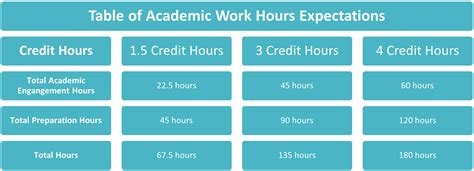Semester credit hours are a unit of measurement used to quantify the amount of academic work completed by a student in a college or university. Each semester credit hour typically represents one hour of instruction per week for a 15-week semester. For example, a three-credit-hour course would meet for three hours each week over the course of a semester.

Semester credit hours are important because they:
- Help students track their progress toward graduation. Each course a student takes is worth a certain number of semester credit hours. By tracking the number of semester credit hours they have earned, students can ensure they are on track to graduate on time.
- Are used to calculate a student’s GPA. A student’s GPA is a measure of their overall academic performance. It is calculated by dividing the total number of grade points earned by the total number of semester credit hours attempted.
- Determine a student’s eligibility for financial aid. Many forms of financial aid, such as scholarships and grants, are awarded based on a student’s academic progress. To be eligible for these forms of aid, students must typically maintain a certain GPA and be enrolled in a minimum number of semester credit hours.
The number of semester credit hours required to graduate varies depending on the degree program a student is pursuing. However, most bachelor’s degrees require students to earn between 120 and 128 semester credit hours.
To calculate your semester credit hours, simply multiply the number of hours you spend in class each week by the number of weeks in the semester. For example, if you are taking a three-credit-hour course that meets for three hours each week over a 15-week semester, you would earn a total of 45 semester credit hours for that course.
Here are a few tips for managing your semester credit hours:
- Create a schedule and stick to it. One of the best ways to stay on track with your semester credit hours is to create a schedule and stick to it. This will help you ensure that you are spending enough time on each course and not getting behind.
- Set realistic goals. Don’t try to take on too many semester credit hours at once. It is better to take a few courses and do well in them than to take too many courses and struggle to keep up.
- Take advantage of resources. Your college or university likely offers a variety of resources to help you succeed, such as tutoring, counseling, and academic advising. Take advantage of these resources if you need them.
- Be mindful of deadlines. Semester credit hours are not the only important thing to keep track of. Make sure you are also aware of assignment deadlines, exam dates, and other important dates.
Semester credit hours are an important part of college life. By understanding how they work, you can stay on track to graduate on time and achieve your academic goals.
